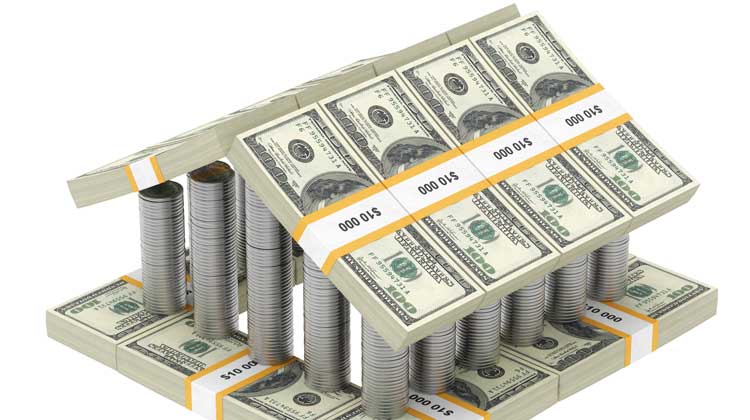 After reaching 9.1 percent in June, the inflation rate backed off to 8.5 percent in July. Though a bit of a drop from the previous month—and aside from this year so far—inflation hasn’t been this high since December 1981.
After reaching 9.1 percent in June, the inflation rate backed off to 8.5 percent in July. Though a bit of a drop from the previous month—and aside from this year so far—inflation hasn’t been this high since December 1981.
Now, in the early part of this year, a lot of homebuyers challenged by stiff competition in the spring decided to take a break as we moved into summer. But as they’ve done so, inflation (as well as loan interest rates) have increased. The question is: Should homebuyers still look for a home with prices and inflation where they are today?
Well, buying real estate—whether for investment or simply to own a home—can be a pretty good hedge against inflation.
It’s pretty simple. Particularly if you’re a renter, inflation can kill you financially. Typical control on rent is limited to a one- or two-year lease, at which point the owner can raise the rent.
If you’re a homeowner, you’ll typically lock in your monthly payment on a mortgage. And aside from ancillary cost increases, such as property tax or homeowner’s insurance, your payment on that mortgage will stay the same for the life of the loan, assuming you selected a fixed rate.
In addition, your monthly mortgage payment reduces the principal on your loan and inches you closer to paying it off. Rent simply gives you the privilege to live in a certain place, and your monthly payment is the cost of that privilege. There’s no equity or savings attached to meeting a monthly rent payment, and at the end of a lease, you own nothing that you’ve put in.
The act of paying a mortgage has many more benefits aside from the obvious ability to occupy a residence that is yours. In addition to reducing the principal on your loan, year in and year out, your equity increases with the value of your property. Particularly in areas such as Northern Virginia or Washington, D.C., where an inventory shortage has existed for decades, homeowners can easily realize a substantial increase in value over time—all the while your payment stays the same. Even if there is no equity increase for a time, the interest you pay on your mortgage is tax deductible.
Ultimately, when you convert cash into a residence you own, you’re hedging your bets against inflation, which will attack and reduce the actual value of that money if it just sits in the bank.
We’re not alone in our assessment, either. Moneycrashers.com lists real estate among precious metals, commodities, and stocks, among other suggestions, as a hedge against inflation. Benzinga.com has a good piece about it here, as does Forbes.
No investment, of course, is without risk, and we encourage you to speak with your financial adviser and complete your due diligence before diving into a property purchase. Still, it might be helpful to explore converting cash into a hard asset such as a home that could bring you a return over time.
